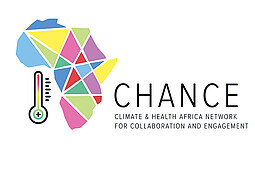Africa continues to be the most vulnerable to the impacts of climate change. Rising temperatures, erratic rainfall patterns, and extreme weather events present serious threats to public health. This vulnerability is heightened by limited resources for climate adaptation, inadequate health infrastructure, and economic challenges that impede swift response and recovery efforts. Among the various health challenges associated with climate change, vector-borne diseases, particularly malaria, emerge as a paramount public health concern.
Malaria remains one of the leading causes of morbidity and mortality in sub-Saharan Africa, affecting millions each year, including around 12.7 million pregnant women, which accounts for 36% of cases. The situation is further complicated by the emergence of resistance to pyrethroid insecticides and antimalarial drugs, jeopardizing current control efforts. Climate variability exacerbates these challenges by impacting vector breeding patterns, disease transmission cycles, and the geographical expansion of malaria into new regions. Similarly, other climate-sensitive diseases, such as diarrheal illnesses and neglected tropical diseases (NTDs), are expected to rise as a result of changing environmental conditions.
Addressing these health threats necessitates a multidisciplinary approach that incorporates climate-adaptation strategies, innovative technologies, and community-driven interventions. AI-driven-disease surveillance, enhanced public health policies, and climate-smart health systems are vital to alleviating the detrimental effects of climate change on disease burdens. It is essential to consider resource limitations and socio-cultural factors when designing adaptive interventions that are effective, contextually relevant, and gender-sensitive. Collaborative efforts among researchers, policymakers, healthcare professionals, and environmental organizations are critical for establishing climate-resilient health systems throughout Africa.
To participate use this Zoom link:
https://us06web.zoom.us/j/84616443225?pwd=JXOpPmO1tvXvPa2SoO5Gay901AurNq.1
Meeting-ID: 846 1644 3225 / Access Code: 116584


